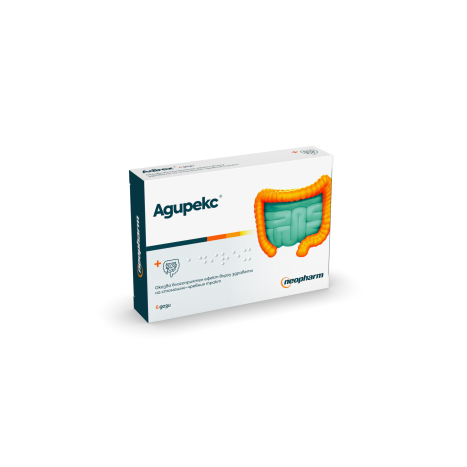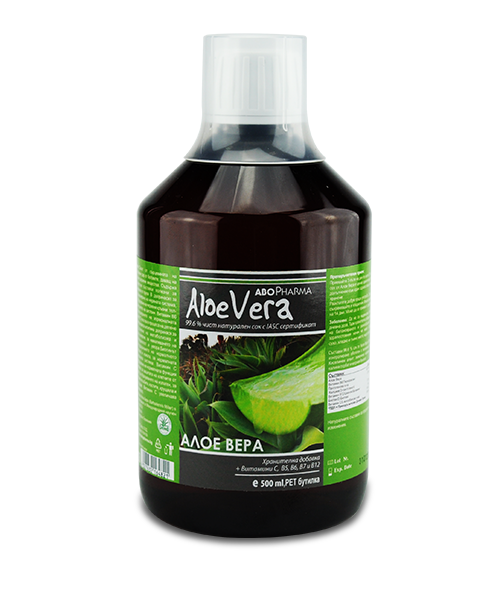NEOPHARM ADIREX / Adirex for the gastrointestinal tract x 6 doses
Adirex 6 doses
Contents of the leaflet:
- What is good to know about diarrhea?
- What is ADIREX ® ?
- How does ADIREX ® work and who is it for?
- Who should not take ADIREX ® ?
- What are the side effects of ADIREX ® ?
- When and how should ADIREX ® be taken?
- Storage.
I. WHAT IS GOOD TO KNOW ABOUT DIARRHEA?
ESSENCE AND CAUSES OF ORIGIN
Acute intestinal infections are second in frequency after upper respiratory tract infections.
According to the latest definition of the World Health Organization, diarrheal syndrome includes the presence of three or more loose or mushy stools per day, with changed color and odor. As a result, there is a loss of fluids and electrolytes, which leads to a violation of the alkaline-acidic balance.
Diarrhea can be defined as acute if the course is limited to 14 days, subacute or persistent when it lasts between 2 and 4 weeks, and chronic – more than 4 weeks.
Most often, acute diarrhea is caused by infectious agents such as viruses, bacteria, and parasites.
In industrialized countries, 70-80% of cases of acute intestinal infections are caused by viruses. Unlike children under 5 years of age, where the main cause of acute diarrhea is Rotavirus, in adults it is another - Norovirus. Other common causes of acute diarrhea are Adenovirus, Enterovirus.
Enteropathogenic Escherichia coli, Salmonella, Shigella, Vibrio cholerae are important bacterial causative agents.
Another common cause of acute diarrhea is travel (traveler's diarrhea), because of the stress the body experiences and its resistance to bacteria in the new place.
MECHANISMS OF OCCURRENCE
Diarrhea is often a defense mechanism protecting the body from various damaging factors acting on the intestines or other organs. Daily fluid exchange takes place in the gastrointestinal tract through secretion and resorption. A healthy organism resorbs (absorbs) the majority (99%) of fluids taken orally and secreted by various glands (salivary glands, pancreas). In these cases, the bowel movements are well formed and regular. Diarrhea can occur for various reasons that disrupt the mechanisms of intestinal absorption and secretion:a) Undigested carbohydrates in the small intestine lead to water retention, which changes the normal consistency of stool
This mechanism causes the so-called osmotic diarrhea.
b) With impaired sodium resorption and increased chlorine secretion, the body releases water in the small intestine, which leads to the development of the so-called secretory diarrhea. Secretory diarrhea is most often the result of an infection or taking certain medications.
c) Certain diseases, such as hyperthyroidism, irritable bowel syndrome, etc., can lead to an accelerated intestinal passage, which reduces the time for resorption of liquids and causes the formation of liquid stools. This diarrhea is called motility.
d) Diarrhea associated with inflammatory bowel diseases is a consequence of loss of epithelial cells that cover the intestinal mucosa and destruction of intercellular connections, which allows water, electrolytes and proteins to accumulate in the intestinal cavity. This type of diarrhea occurs as a combination of the mechanisms described above.
THERAPEUTIC AGENTS
Diarrhea is most often the result of a complex action of the above-mentioned mechanisms of occurrence. Effective therapeutic solutions should be aimed at neutralizing each of these mechanisms.
In addition to the complexity of their action, antidiarrheal agents also differ significantly in the way they control diarrheal stools.
Diarrhea is a normal protective self-cleansing response. In the case of artificial cessation with medications that suppress intestinal peristalsis, disease-causing agents and their toxins are retained. Because it interferes with the healing and recovery process, this type of therapy is not recommended for diarrhea caused by viruses, bacteria, or parasites. Infectious diarrhea should be controlled naturally with antidiarrheal agents with a complex mechanism of action, which do not block the normal intestinal passage and its physiological cleansing, and do not exhibit adverse side effects such as secondary constipation and bloating. This is possible through the use of clinically proven ingredients with an anti-diarrheal effect, which:
- neutralize disease-causing microorganisms and their toxins,
- provide protection of the intestinal wall
- stop the loss of water and electrolytes,
- restore the balance of intestinal microflora.
In the recommendations of the European Society of Pediatric Gastroenterology, Hepatology and Nutrition, the probiotic yeast Saccharomyces boulardii, the probiotic strain Lactobacillus rhamnosus GG and the trace element zinc are cited as antidiarrheal agents with the most proven beneficial effect in reducing diarrheal episodes. Attention is also paid to a new class of substances, the so-called mucosal protectors that protect the intestinal mucosa. Albumin tannate belongs to them.
I. WHAT IS ADIREX ® ?
ADIREX ® is a combination of 4 specially selected and clinically proven ingredients that has a beneficial effect on the health of the gastrointestinal tract. Maintains the normal frequency of defecation and the physiological water-salt composition and consistency of the intestinal contents. Supports the natural balance of intestinal microflora.
One dose of ADIREX ® consists of 1 capsule and 1 tablet located in one pocket of the blister.
- HOW DOES ADIREX ® WORK AND WHO IS IT FOR? ADIREX ® is suitable for maintaining normal bowel frequency and consistency of bowel contents.
Saccharomyces boulardii is a probiotic yeast. It is distinguished as an extremely durable microorganism that is not affected even by antibiotics, survives through the acidic stomach environment and
passes through the intestines, where it produces enzymes that break down toxins and contributes to the maintenance of normal intestinal microflora.
It supports the physiological barrier function of the intestinal epithelium and its normal permeability to water and salts. It nourishes the intestinal epithelial cells and maintains the electrolyte and enzyme balance in the intestine.
Contributes to the normal frequency of bowel movements and consistency of the intestinal contents.
Lactobacillus rhamnosus GG is one of the most well-studied probiotic strains with a clinically proven beneficial effect for maintaining physiological bowel frequency. It attaches to the intestinal wall, produces metabolites useful for its normal function and increases the population of beneficial bacteria in the intestine. It has a strong ability to nourish the intestinal epithelial cells and maintain the normal barrier function of the intestinal mucosa. In addition, Lactobacillus rhamnosus GG interacts with the cells of the immune system located in the intestinal tract, as a result of which it acts favorably on local immunity and thus further contributes to maintaining the health of the gastrointestinal tract.
Zinc is a trace element that affects ion transport in the intestine and provides an optimal physiological water-salt composition and consistency of the intestinal contents. Supports the normal barrier function of the intestinal wall.
Albumin tannate binds to the proteins of the intestinal mucus and forms a protective film that keeps the intestinal wall healthy and preserves its physiological barrier function. In addition, it supports normal electrolyte and water exchange in the intestines, as a result of which stools are of normal frequency and consistency.
The ADIREX ® capsule is gastro-resistant, meaning it passes through the acidic environment of the stomach and dissolves in the small intestine. In this way, the probiotic strains in its composition reach the intestines alive, where they exert their beneficial effects
I. WHO SHOULD NOT TAKE ADIREX ® ?
Do not take ADIREX ® if you have ever had an allergic reaction to any of the product's ingredients.
ADIREX ® is not used during pregnancy and breastfeeding.
I. WHAT ARE THE SIDE EFFECTS OF ADIREX ® ?
So far, there are no known side effects of the product.
II. WHEN AND HOW SHOULD ADIREX ® BE TAKEN?
It is recommended to start taking ADIREX ® at the first signs of its need.
ADIREX ® is intended for adults and children over 7 years of age.
One dose of ADIREX ® consists of one tablet and one capsule. For adults and children over 12 years of age, it is recommended to start ADIREX ® with an initial double dose of 2 tablets and 2 capsules and continue with 1 tablet and 1 capsule after each subsequent loose or mushy bowel movement. The maximum daily intake should not exceed 6 doses (6 tablets and 6 capsules).
For children from 7 to 12 years old, it is recommended to take one dose of 1 tablet and 1 capsule after every rare or mushy bowel movement. The maximum daily intake should not exceed 5 doses (5 tablets and 5 capsules).
Always take a tablet plus a capsule!
Do not take ADIREX ® with hot or alcoholic beverages to avoid destroying the live bacteria in the capsules.
I. STORAGE
Store ADIREX ® in its original packaging at a temperature of up to 25°C, in a dry place, out of direct sunlight and out of the reach of children.
Do not use the preparation after its expiration date or if the integrity of the package is broken.









